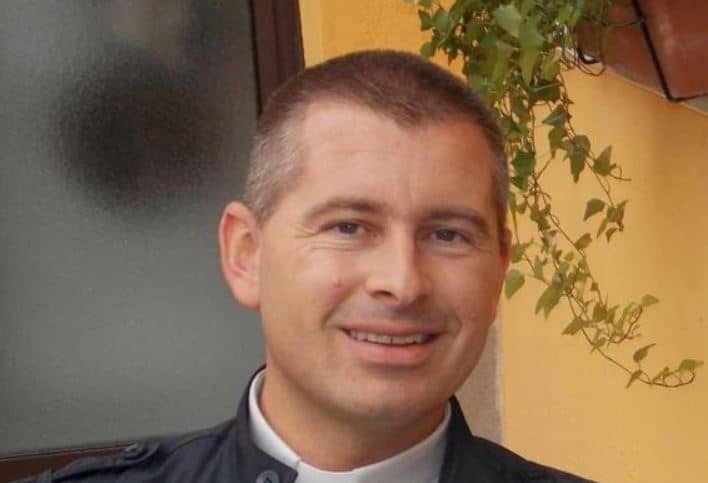ROME – When the Italian government this week issued new rules for the holiday season, among other things imposing a strict curfew making the traditional celebration of midnight Mass on Christmas Eve impossible, it revived debate about the actual time of Christ’s birth.
Issued Dec. 3, the new rules, which extend through the entire holiday season, stipulate, among other things, that travel between regions is forbidden from Dec. 21-Jan. 6, meaning the period just before Christmas and through the Catholic feast of the Epiphany.
Citizens are also prohibited from traveling to different areas of their city on Dec. 25-26, and on New Year’s Day.
A national curfew extending from 10p.m. until 6a.m. will be strictly imposed and will be extended one hour – until 7a.m. – on Jan. 1.
In terms of Christmas Mass – which for many secular Italian papers has been a frontpage issue in recent days – the government has said the traditional celebration of midnight Mass should be bumped up to an earlier time in order to comply with the national curfew.
Speaking of the decision, undersecretary of the Ministry for Health Sandra Zampa said that Masses “will have to finish early with enough time to return home for the curfew at 10p.m. So around 8:30p.m.”
Zampa insisted the decision was made “in agreement with CEI,” the acronym for the Italian bishops’ conference, which she said, “perfectly understood the need.”
After they were made public, the new rules were met with blowback, but it was not from the Catholic Church.
The Italian bishops hosted a Dec. 1 meeting and issued a statement saying they were in agreement on the need “to foresee the beginning and duration of the celebration at a time compatible with the so-called curfew.”
It would be the bishops’ task, they said, to ensure that parish priests would “guide” faithful on sanitary norms such as social distancing in order to ensure maximum participation while also respecting safety regulations.
Opposition to the measure came from two primary, and likely surprising, sources: Italian Masons and Italy’s far-right Lega party.
In a blog posted published on the website for the Roosevelt Movement, Italy’s largest organization of Masons, the head of the association, Gioele Magaldi, lambasted what he called “the scandalous silence of the Catholic Church” in the wake of Thursday’s decree, insisting it constitutes a violation of religious freedom.
The new measures, Magaldi said, “even mortify Christmas: No midnight Mass, and it will be forbidden to see loved ones and embrace them … This is inadmissible.”
The Church “has also been heroic, it has had its martyrs torn to pieces by lions,” he said. However, referring to the bishops’ compliance with the new COVID measures, he asked, “where is the courage of the Church in the face of a government that dares to ‘turn off’ Christmas, pretending to believe that keeping Italians closed up at home is really a solution?”
“Those who hope that a further sacrifice in terms of distancing and renunciations are deluded,” he said, adding, “it is clear that the measures adopted against COVID, which often violate the Constitution, are completely useless.”
Italian politician Francesco Boccia, minister for regional affairs and autonomies and a member of the Lega, also criticized the new decree as authoritarian, saying it would be a “heresy” to have the infant Jesus be born “two hours earlier.”
In comments to Antenna Tre Nordest, a regional television station in Veneto, the Patriarch of Venice, Francesco Moraglia, who participated in CEI’s Dec. 1 session, responded to Boccia’s complaints, calling them “laughable.”
“Ministers should focus on their duty and not worry so much about the hour the baby Jesus was born,” Moraglia said, adding, “I think the Church has the maturity and ability to evaluate its behavior in line with the dutiful requests of the public authorities.”
“We must return to the essentials of Christmas,” he said, noting that the liturgical celebration of Christmas “never intended to intercept the hour of Jesus’s birth.”
Formally the Catholic Church has never issued a definitive ruling on the exact time and date of Jesus’s birth. Throughout the world, midnight Masses on Christmas Eve are often celebrated as early as 9 or 10 p.m.
This also holds true for the Vatican, where since the later years of John Paul II’s papacy the midnight Mass has been celebrated at 10 p.m., allowing the pope to rest and still be up to celebrate Mass Christmas morning.
Moraglia in his comments noted that the Church allows Mass to celebrated in the afternoon and at night on Christmas Eve, as well as the morning and night of Christmas.
“What Minister Boccia tried to agitate or resolve is not an issue, but simply a question of organizing timetables,” he said, adding, “we want to obey the law as good citizens, who also have the maturity to understand how to manage their celebrations without needing theological advice from those who are perhaps less equipped” on the subject.
What is needed, he said, is “security.” Pointing to the diverging opinions of experts and politicians on the virus and measures that ought to be taken, Moraglia said those in positions of government leadership “must be able to give a unified line, and not a quarrelsome one.”
Follow Elise Ann Allen on Twitter: @eliseannallen
















